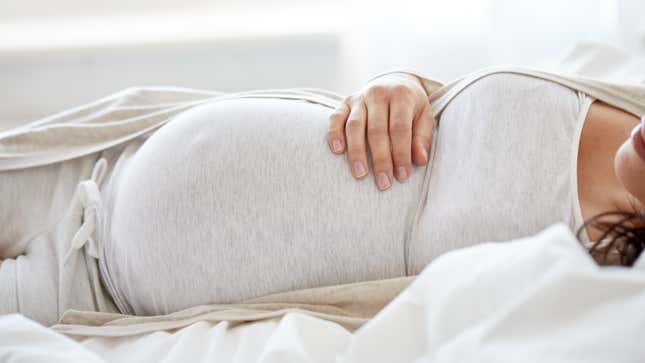Maybe You Can Sleep However the Fuck You Want During Pregnancy, Suggests Study
Latest

Doctors often warn against sleeping on your back during pregnancy, and some go so far as to suggest favoring your left side. It’s really a cherry on the top of pregnancy’s many discomforts: Imagine trying to sleep while housing a kicking, rolling, sucker-punching basketball-sized fetus without feeling able to turn over. The thinking behind said advice is that back sleeping could compress the blood vessels to the uterus and cause pregnancy complications, and that left-side sleeping increases circulation. Now, though, a new study suggests that, eh, maybe never mind. Maybe you don’t need to endure sleep-based torture.
The study, published in the journal Obstetrics & Gynecology, looked at outcomes for nearly 9,000 women before they reached the 30-week mark of their pregnancies. The researchers found that 22 percent experienced complications, but as Reuters reports, “women who slept on their right side or on their back were no more likely to experience serious complications than women who slept on their left side.” That sentence right there is a perfect and horrifying encapsulation of the degree of regulation, monitoring, and restriction around pregnancy. We’re not just talking about back sleeping, but also what side, right or left, pregnant people sleep on.
-

-

-

-

-

-

-

-

-

-

-

-

-

-

-

-

-

-

-

-

-

-

-

-

-

-

-

-

-

-

-

-

-

-

-

-

-

-

-

-








































